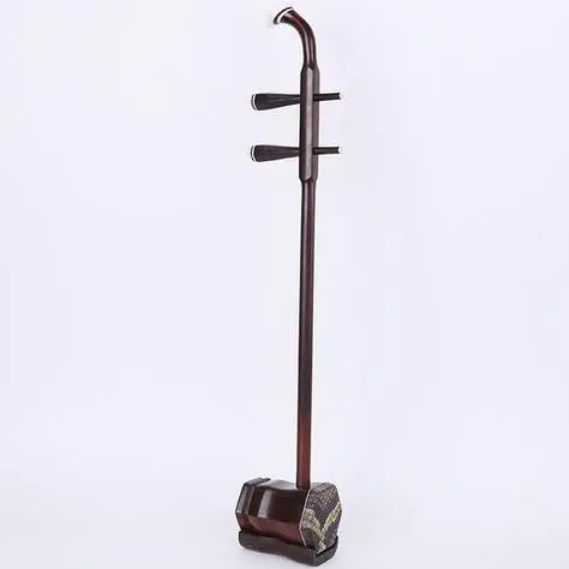Mahogany - the mainstream wood for making erhu
Now the mainstream erhu manufacturers make erhu the most commonly used mahogany, which is a hardwood. Hardwood is a very broad concept. It is different from cork, which is the kind of wood that breaks with a little force, and has large pores and scratches with a fingernail, such as flammable pine. Hardwood is of good quality, high density, resistance to compression, drop and deformation. Therefore, cork is generally used for crafts, vehicles, containers, mats, plug tools, etc., while hardwood is used to make furniture, load-bearing, musical instruments, etc.

As far as the wood used for making erhu in the erhu direct selling market is concerned, all kinds of yellow, black, red sandalwood, red sandalwood, rosewood and rosewood belong to the national standard mahogany, and they are all mahogany with very hard texture and fine and uniform structure. species. The prices of these woods vary according to their rarity, age, and material. Rare is the most expensive, and the wood that has been out of print, such as Indian lobular red sandalwood and Hainan huanghuali, is naturally expensive. Siamese rosewood is not cheap because it takes hundreds of years to grow and it is difficult to grow. The structure of yellow and ebony (ebony) is dense and hard, so it improves the grade of wood.
Generally speaking, the old rosewood in the erhu direct sales industry refers to the Siamese rosewood in Southeast Asia. The African Bali mulberry is similar to the rosewood in nature, so it is commonly called African rosewood. The African rosewood is similar to the Indian lobular rosewood, but the African rosewood belongs to the rosewood Only the Indian lobular red sandalwood belongs to the red sandalwood genus, while what is commonly known as huanghuali is the fragrant rosewood of the genus Dalbergia incense sticks. Of course, these are more professional classifications. Hu friends don't need to divide them so carefully, they just need to understand the price gap between them.
 渝公网安备 50010702504639号
渝公网安备 50010702504639号